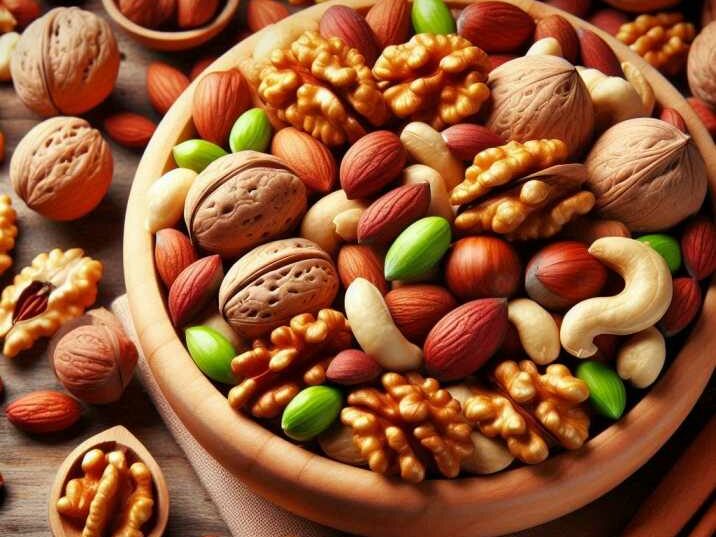Introduction
Table of Contents
Healthy eating is essential for everyone, especially for young athletes who need proper nutrition to fuel their active lifestyles. In the quest for fitness and performance, understanding the role of fats in the diet is crucial. In this article, we’ll delve into the world of healthy fats, exploring their significance for young athletes and how they contribute to overall fitness.

The Basics of Fats
Fats are an essential macronutrient that provides energy and supports various bodily functions. There are different types of fats, including saturated fats, unsaturated fats, and trans fats. While saturated fats are often associated with negative health effects when consumed in excess, unsaturated fats are considered healthy fats that offer numerous benefits.
The Importance of Healthy Fats for Young Athletes
For young athletes, incorporating healthy fats into their diets is crucial for several reasons:
Energy Source:
Healthy fats provide a concentrated source of energy, which is vital for sustaining intense physical activity during sports and training sessions. When young athletes engage in high-energy activities, such as running, jumping, or weightlifting, their bodies require ample fuel to perform optimally. Healthy fats serve as a long-lasting source of energy, helping to sustain endurance and stamina throughout demanding workouts.
Nutrient Absorption:
Certain vitamins, such as vitamins A, D, E, and K, are fat-soluble, meaning they require fat for absorption. Including healthy fats in meals helps ensure adequate absorption of these essential nutrients. For young athletes striving to maintain peak performance and overall health, maximizing nutrient absorption is paramount. By incorporating healthy fats into their diets, they can optimize the utilization of vital vitamins and minerals, supporting various physiological functions and promoting overall well-being.
Joint Health:
Omega-3 fatty acids, found in foods like fish and nuts, have anti-inflammatory properties that can help reduce joint pain and inflammation, promoting better mobility and performance in young athletes. Engaging in rigorous physical activities can put strain on joints, leading to discomfort and potential injuries. Omega-3 fatty acids play a crucial role in mitigating inflammation and supporting joint health, allowing young athletes to move with greater ease and agility. By including omega-3-rich foods in their diets, such as salmon, walnuts, and flaxseeds, young athletes can enhance joint function and reduce the risk of sports-related injuries.
Heart Health:
Consuming healthy fats, such as those found in avocados and olive oil, can support heart health by lowering LDL cholesterol levels and reducing the risk of cardiovascular diseases. Maintaining cardiovascular health is essential for young athletes, as it directly impacts their overall fitness and performance. Healthy fats, particularly monounsaturated and polyunsaturated fats, help to improve cholesterol profiles, lowering levels of harmful LDL cholesterol while increasing beneficial HDL cholesterol. By prioritizing heart-healthy fats in their diets, young athletes can safeguard their cardiovascular systems and promote long-term wellness.
Types of Healthy Fats
Monounsaturated Fats:
These fats are found in foods like avocados, nuts, and olive oil. They are known for their heart-healthy benefits and can help improve cholesterol levels. Monounsaturated fats are a staple of the Mediterranean diet, which is renowned for its ability to promote cardiovascular health and longevity. Incorporating foods rich in monounsaturated fats into their diets, such as avocados and almonds, can benefit young athletes by supporting heart health and overall well-being.
Polyunsaturated Fats:
Sources of polyunsaturated fats include fatty fish (e.g., salmon, mackerel), flaxseeds, and walnuts. These fats contain omega-3 and omega-6 fatty acids, which are essential for brain function and cardiovascular health. Polyunsaturated fats are integral components of a balanced diet, providing essential nutrients that support various bodily functions. Young athletes can benefit from including polyunsaturated fats in their meals to enhance cognitive function, support cardiovascular health, and reduce inflammation.
Omega-3 Fatty Acids:
Omega-3s are a type of polyunsaturated fat known for their anti-inflammatory properties and benefits for heart and brain health. They are abundant in fatty fish, chia seeds, and flaxseeds. Omega-3 fatty acids play a critical role in promoting overall health and well-being, particularly for young athletes striving to optimize their performance. These essential fats support brain function, reduce inflammation, and lower the risk of chronic diseases. By incorporating omega-3-rich foods into their diets, such as salmon, sardines, and hemp seeds, young athletes can nourish their bodies and minds for peak performance.
Incorporating Healthy Fats into the Diet
Here are some tips for young athletes to include healthy fats in their meals:
Add Avocado:
Spread avocado on whole-grain toast or include it in salads and sandwiches for a creamy and nutritious boost. Avocados are rich in monounsaturated fats, fiber, and vitamins, making them an excellent addition to any athlete’s diet. Whether mashed into guacamole or sliced atop a salad, avocados provide a delicious and versatile way to incorporate healthy fats into meals.
Snack on Nuts:
Enjoy a handful of mixed nuts as a convenient and satisfying snack between meals. Choose unsalted varieties for a healthier option. Nuts, such as almonds, walnuts, and cashews, are packed with heart-healthy fats, protein, and fiber, making them an ideal snack for young athletes on the go. Whether enjoyed solo or mixed into trail mix, nuts provide sustained energy and satiety, helping young athletes stay fueled and focused throughout the day.

Cook with Olive Oil:
Use olive oil for cooking and dressing salads to add flavor and healthy fats to your meals. Olive oil is a staple of Mediterranean cuisine, prized for its rich flavor and numerous health benefits. High in monounsaturated fats and antioxidants, olive oil offers a delicious and nutritious way to incorporate healthy fats into cooking. Whether drizzled over roasted vegetables or used as a base for homemade salad dressings, olive oil adds depth and richness to dishes while promoting heart health and overall wellness.
Eat Fatty Fish:
Incorporate fatty fish like salmon, tuna, or mackerel into your diet at least twice a week to benefit from their omega-3 content. Fatty fish are among the richest sources of omega-3 fatty acids, essential fats that support brain function, heart health, and overall well-being. Whether grilled, baked, or poached, fatty fish provide a delicious and nutritious addition to any meal. By including fish in their diets regularly, young athletes can reap the numerous health benefits of omega-3 fatty acids, supporting their fitness goals and long-term health.
Include Seeds:
Sprinkle chia seeds, flaxseeds, or hemp seeds on yogurt, oatmeal, or salads for an extra nutritional boost. Seeds are nutritional powerhouses, packed with healthy fats, protein, fiber, and essential vitamins and minerals. Whether stirred into breakfast bowls or sprinkled over salads, seeds provide a convenient and versatile way to add healthy fats to meals. Chia seeds, in particular, are rich in omega-3 fatty acids, while flaxseeds offer lignans, which have antioxidant properties. By incorporating seeds into their diets, young athletes can enhance their nutrition and support optimal health and performance.
Table of information summarizing key details about healthy fats for young athletes:
| Type of Healthy Fat | Food Sources | Benefits |
|---|---|---|
| Monounsaturated Fats | Avocados, Nuts (e.g., almonds, cashews), Olive Oil | – Heart-healthy benefits – Improved cholesterol levels |
| Polyunsaturated Fats | Fatty Fish (e.g., salmon, mackerel), Flaxseeds, Walnuts | – Essential for brain function – Supports cardiovascular health |
| Omega-3 Fatty Acids | Fatty Fish (e.g., salmon, sardines), Chia Seeds, Flaxseeds | – Anti-inflammatory properties – Benefits for heart and brain health |
This table provides a quick overview of the types of healthy fats, their food sources, and the benefits they offer for young athletes.
Conclusion
In conclusion, healthy fats play a vital role in supporting the fitness and performance of young athletes. By incorporating sources of monounsaturated, polyunsaturated, and omega-3 fatty acids into their diets, young athletes can enjoy numerous health benefits, including sustained energy, improved nutrient absorption, enhanced joint and heart health, and reduced inflammation. With the right balance of fats, young athletes can optimize their nutrition and achieve their fitness goals with confidence. By prioritizing whole foods rich in healthy fats, such as avocados, nuts, seeds, and fatty fish, young athletes can nourish their bodies and minds for peak performance and lifelong wellness.
FAQs
1. What are healthy fats, and why are they important for young athletes?
Healthy fats, such as monounsaturated and polyunsaturated fats, are essential nutrients that provide energy, support nutrient absorption, promote joint and heart health, and reduce inflammation, making them vital for young athletes’ performance and overall well-being.
2. Which foods are rich in healthy fats?
Foods rich in healthy fats include avocados, nuts, seeds, fatty fish (salmon, tuna), olive oil, and flaxseeds, among others. Incorporating these nutrient-dense foods into meals can help young athletes meet their dietary fat needs and support optimal health and performance.
3. How can healthy fats benefit joint health in young athletes?
Healthy fats, particularly omega-3 fatty acids found in fatty fish and nuts, have anti-inflammatory properties that can help reduce joint pain and inflammation, promoting better mobility and performance in young athletes engaged in rigorous physical activities.
4. Are there any unhealthy fats young athletes should avoid?
Yes, young athletes should limit their intake of trans fats and excessive saturated fats, commonly found in processed foods, fried foods, and baked goods. These unhealthy fats can have negative effects on health and performance, so it’s essential to prioritize whole foods rich in healthy fats instead.
5. What are some practical ways for young athletes to incorporate healthy fats into their diets?
Young athletes can add healthy fats to their diets by including foods like avocados, nuts, seeds, fatty fish, and olive oil in their meals and snacks. Whether spread on toast, sprinkled on salads, or enjoyed as a snack, these nutrient-dense foods offer delicious and convenient ways to boost healthy fat intake and support overall wellness.


